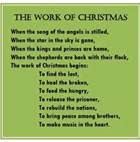Thursday, January 17, 2013
WHEN VIOLENCE ABOUNDS: OUR CALL TO ACTION AGAINST VIOLENCE
(This essay was first published as an article in the United Methodist Connection of the Baltimore-Washington Conference in June 1999. It was also published by the United Methodist News Service, and as a chapter in my 2006 book, 'And Yet the Melody Lingers; Essays, Semons and Prayers on Religion and Race.")
The recent acts of violence that have littered our national and local news should heighten our collective conscious and raise our level of concern. The trial and acquittal of four police officers charged in the death of Amadou Diallo is but the latest episode that serves to remind us of the pervasiveness of violence and hatred in our midst. While the issues surrounding Diallo’s death – a West African immigrant who was shot 41 times while unarmed in New York – notably points to the problems underlying some zero-tolerance enforcement policies, and rogue police officers involved in acts of brutality, other instances also serve to point to the permeation of violence in our midst.
Whether it is a 6-year-old boy who brings a gun into a Michigan school and kills his first-grade classmate, or two promising high school seniors in Washington, DC who are gunned down after a basketball game, or a Pennsylvania man who fatally shoots three persons because of his alleged anti-white and anti-Jewish views, we find a plethora of evidence pointing to an increasingly violent society.
Violence abounds. Whether it’s the death of Taisha Miller, the young African American woman murdered by police while sitting in her car in California, or James Byrd, an African American man who was dragged behind a truck to his death by white supremacists in Texas, or Matthew Shepherd - the young college student who - because of his sexual identity - was beaten, hung on a pole and left to die in Wyoming - violence is all around us.
The problem of violence is complex and multi-dimensioned to say the least. The death of Amadou Diallo – and the lack of justice (heretofore) for those who murdered him - points to the prevalence of racism in America. Racism has resulted in a double-standard in many policing practices. These practices are the by-products of policies that tout decreasing inner-city crime rates – but often at the expense of the selective interrogation and arrest of innocent persons of color who fit certain profiles – particularly African American males.
Several other factors seem to be complicit in the recent wave of violence in America. Widening economic disparities between the rich and the poor contribute to the escalating violence. We observe that a disproportionate number of those who are victims, as well as many of the alleged perpetrators of violent acts are a part of America’s under-class.
Additionally, the continued right-wing political influence of the gun lobby – spearheaded by the National Rifle Association - seems intent on keeping guns in the hands of any person – of any age – who for any reason wants to possess a handgun. Furthermore – violence in the media and in cyber-space serve as breeding grounds for a preponderance of the intolerance and violent acts that are carried out among us.
What is the church’s response when violence abounds? First it is incumbent upon the United Methodist Church as a community of the faithful to affirm that the problem of violence in American society is the church’s problem. The apostle James shared that “faith without works is not faith at all.” John Wesley’s notion of social holiness – that we are to “reform the nation and spread Scriptural holiness” - helps us to see that the United Methodist Church is to be prophetically and actively engaged in speaking and acting to eradicate the societal ills that plague us.
Secondly, we must affirm that the problem of violence is shared by all of us. As one of the most diverse communities of faith in the United States, we who are United Methodists are challenged to realize that whether in the city or the suburbs, violence - and its underlying forms of hatred - whether racism, homophobia, sexism or any other forms of xenophobia - must be viewed as our collective dilemma. Violence touches all of our lives, our families and our churches.
Therefore, solving the problem of violence in America is our shared responsibility. Each of our churches - and each member of the United Methodist Church - should prayerfully consider ways that we can constructively address the problem of violence among us. Our collective prayers and thoughts should then spawn us into prophetic social action.
Dr. Martin Luther King, Jr. placed the matter of our faith within the context of peace and justice. King said, “True peace is not merely the absence of tension, but it is the presence of justice.” As we strive to become a just church and society, may we all seek to be the peacemakers that Christ calls us to be.
Wednesday, January 2, 2013
Subscribe to:
Posts (Atom)


